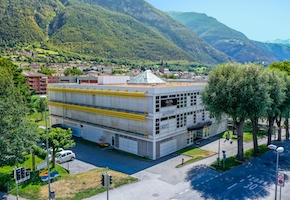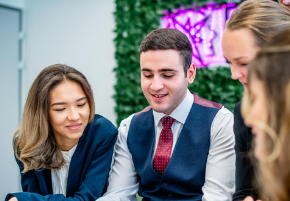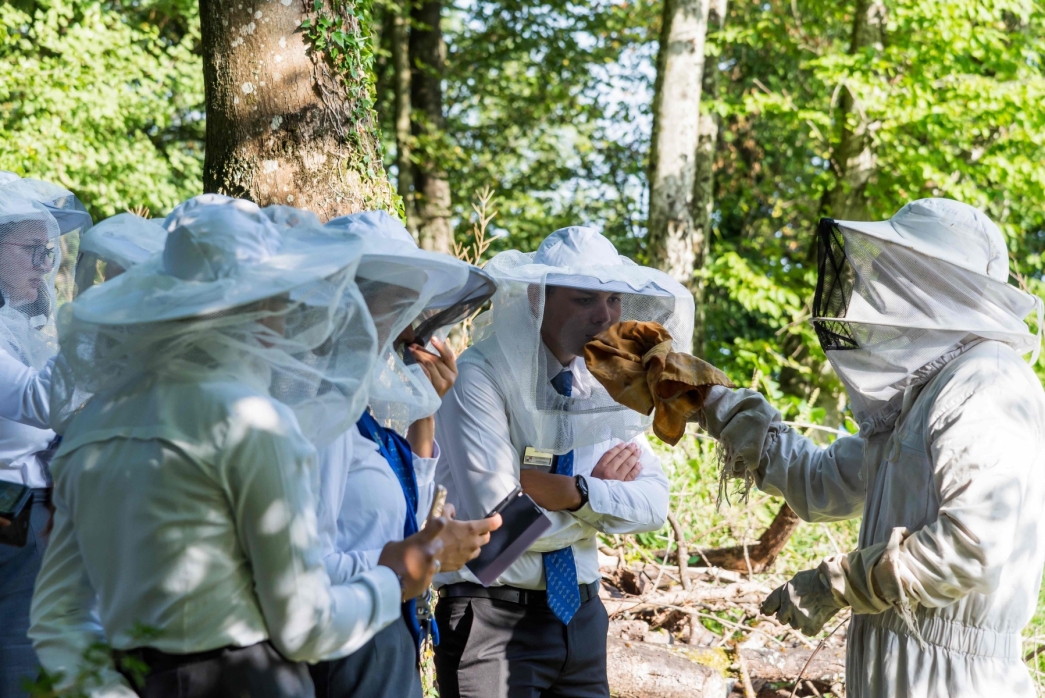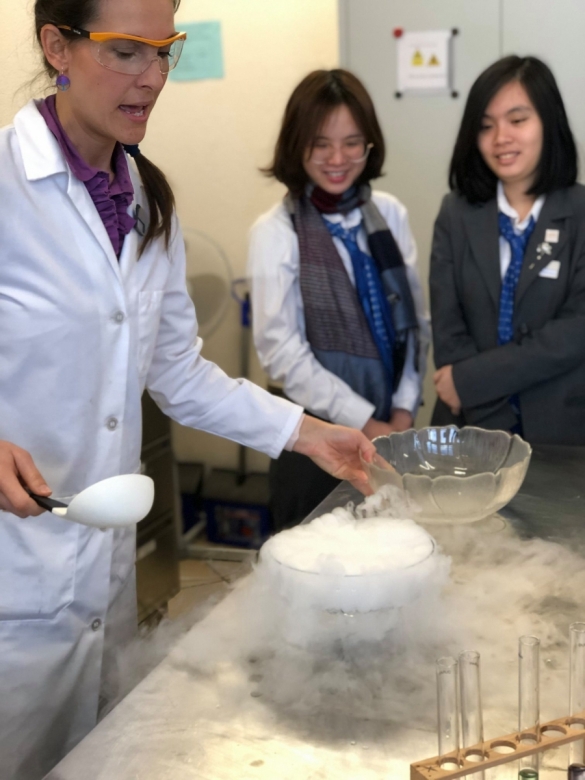- About
- Programs
- Innovation & Research
- Campus Life
- Career Services
- Admissions
- News & Events
- Alumni
The Small Changes That Make a Difference
It’s official: César Ritz Colleges Switzerland has become the very first higher education institution in the world to be certified by Green Globe, the highest standard for sustainability.
Since setting this goal in 2019, creative thinking, hard work, and a spirit of innovation have led the school to make a multitude of practical changes towards sustainability. Here are some examples.
Raising students’ awareness about biodiversity
Beehives have been installed on campus and local beekeeper Romain Petitcolin has been entrusted with ensuring the wellbeing of our 250’000 bees. This is a year-round activity and special attention and care are needed to help the bees thrive. Students take part in a workshop to better understand this little insect's life and how we depend on their survival. In addition to contributing to preserving the ecosystem in Le Bouveret, students and staff are privy to tasting the delicious honey during the annual harvesting.
A new way of approaching purchasing
A holistic sustainable purchasing policy that considers economic, environmental, and societal factors had to be put in place.
The focus of the policy is to:
- Reduce overall consumption and shift to products with reduced product lifecycle impact.
- Support the school in its commitment to reduce and offset our usage of electricity, water and greenhouse gas emissions.
- Consider the overall cost of an item, not just the short-term financial competitiveness.
The main objective is to partake in goods and services that have long-term value for money, prioritizing support of local businesses to help boost the local economy. The procurement of goods must also reach certain ethical standards, ensuring that the exchanges are free of bias or bribery.
Every time you spend money, you're casting a vote for the kind of world you want.
- Anna Lappe
A new way of managing resources and facilities
Management had to look at how resources like water electricity and gas were being managed. In regard to water for example, aerators were installed on all the faucets on campus, reducing water flow. Another example of a sustainable practice is to use drip irrigation for our grounds, over 90% more efficient than other irrigation methods. It is the most appropriate watering method for sloped plantings and therefore helps minimize water consumption.
While there are bigger technical projects on the horizon, targeting gas and electricity, smaller changes such as this can be made easily, and are a great starting point.
A new mindset
All of these practical alterations are crucial. But being certified by Green Globe is more than that.
Assistant Dean Sylvana Navarro, who played a key role on the road to certification, points out that “what really makes a difference is a change in mindset and a fundamental transformation within the internal structure of the school.”
New policies had to be written up and put into practice, and staff has to be continuously trained and reminded of our new mindset. Changing school policy is fundamental for sustainable management practices.
But again, it’s more than that.
César Ritz Colleges Switzerland is also educating the future spearheads of the hospitality industry, and what they are taught matters. Every term now includes guest lectures on sustainability in multiple areas. As worldwide tourism has one of the greatest impacts on the environment, it is of crucial importance to educate our students.
Helping students cultivate an awareness and understanding of the impact of their choices on the environment has become central.
The curriculum seeks to bring together environmental topics with business and innovation. For example, microeconomics classes explore the notion of a circular economy, a vast and trendy subject in this discipline that seeks to create win-win situations for all stakeholders. In the Sustainable Science course, for example, students learn about natural cleaning products and how to make them.
New perspectives
The global pandemic has led to a rise in the consumption of food, as students are taking their courses online, and, consequently, the amount of single-use packaging has increased.
On-campus recycling initiatives have, therefore, become a priority. Communications campaigns are led to raise awareness about the reduction of overall waste. Particular attention is paid to food waste in the restaurants and cafeterias as it is collected by a third-party supplier and transformed into biofuel.
As students graduate with a knowledge and understanding of their environmental impact, they will be able to implement sustainable policies in their own businesses, and the changes brought into place by their alma mater will inevitably ripple outwards.
And still, César Ritz Colleges Switzerland seeks to do more. As Sylvana points out, “Getting this certification is not the ending, but basically the beginning of something.”
Getting this certification is not the ending, but basically the beginning of something.
So, what next?
The school has already begun to participate in other ways in the conservation of biodiversity in Switzerland, looking into forming partnerships with the L’Association pour la Sauvegarde du Léman, and with COR, an association dedicated to the preservation of wildlife. The forest behind the school would be a potential place to install a bird's nest, which would contribute to the diversity and population of endangered species in the area.
The hope is, with César Ritz Colleges Switzerland having laid the groundwork and been the first to translate words into action, that other campuses and schools would follow suit.
When asked what aspect of this journey she was most proud of, Sylvana simply quoted Walt Disney:
The way to get started is to quit talking and begin doing.
#Corporate News



















